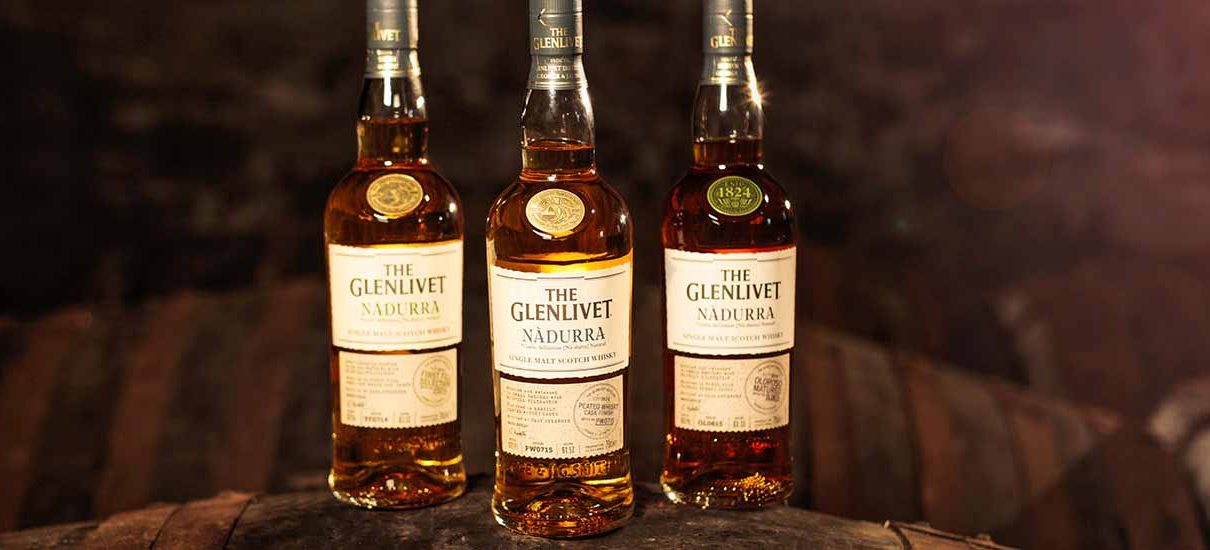
When it comes to whisky, there’s arguably a lot of different terminology to navigate. Single malt vs double malt, chill-filtered whisky, angel’s share. Then there are single cask, first fill and blended varieties to get your head around too. And let’s not forget cask strength expressions either as they have a character that sets them apart from other whiskies as well.
In this article, we’ll take a closer look at what ‘cask strength’ means, explore its straightforward production process, and explore the impact it has on flavour profiles.
Whether you’re a seasoned whisky enthusiast or just starting to explore the vast landscape of spirits and want to boost your bank of whisky facts, understanding the nuances of cask strength whisky offers a deeper appreciation for the craftsmanship behind every sip.
What Does ‘Cask Strength’ Mean?
Rather than referring to any process the whisky has gone through, cask strength refers to what has not been done. Usually in the process of how scotch is made, it is brought down to a standard percentage of alcohol by volume, or proof, by adding water to the spirit before bottling so that each batch is consistent. However, a cask strength whisky, also sometimes referred to as a barrel proof whisky, is bottled at the strength at which it’s drawn from the cask – nothing is added, and nothing is taken away.
This means the spirit is presented at its natural, undiluted alcohol by volume (ABV) strength, which can be significantly higher than the standard bottlings. The ABV of cask strength whisky typically ranges from 50% to well above 60%, though it can vary.
How Does Cask Strength Affect The Flavour?
Cask strength whiskies pack a palatable punch. When the clear spirit first goes into the cask, it’s quite singular in flavour – loaded with The Glenlivet’s unique distillery character. Over time, the whisky develops a symbiotic relationship with the oak cask. The liquid seeps into the wood grain as the flavours held in the oak are diffused into the spirit. It’s here that the intense, robust flavours – the hallmarks of a cask strength whisky – are created.
The absence of dilution allows cask strength whisky to retain its full, unaltered flavour profile, meaning it’s bold. Connoisseurs appreciate cask strength whiskies for their authenticity and the opportunity to experience the spirit in a form that closely resembles how it ages and matures in the cask.
How Do I Drink Cask Strength Whisky?
If you have a higher-proof whisky in your collection, the best way to enjoy it is with water. It’s how our distillers drink it, and you should never be afraid to dilute your whisky to suit your personal tastes. Add room-temperature water or an ice cube, whichever you prefer – just be careful not to over-dilute. Add the water little by little, tasting the whisky after each addition. You’ll notice subtle changes to the taste as different tones and flavours are released, bringing out the complexities in the spirit.
Is Cask Strength Whisky Suitable For Beginners?
When it comes to the best whisky for beginners, you might think starting strong with a cask strength expression would be the wrong move. While cask strength whiskies can be intense, and their higher alcohol content may be challenging for beginners, there’s no reason why beginners can’t enjoy them just as much as whisky aficionados.
The Glenlivet Nàdurra Cask Strength range is the perfect place to start cask strength whisky explorations. Nàdurra means “natural” in Gaelic, and the range is all about an unadulterated whisky experience. Choose from Nàdurra Oloroso, a sherry cask scotch, Nàdurro First Fill Selection, a first fill whisky or Nàdurro Peated Whisky Cask Finish, a peated scotch whisky. The only other things you need are the right types of whisky glasses, and some ice and water, and your journey into cask strength scotch can begin.
If you want to immerse yourself further into the world of whisky, our guide to the different types of whisky is sure to help. You may also find our insights into how to drink whisky and rare whiskies interesting. Of course, if you’d prefer more of a hands-on learning experience, you can delve into our whisky cocktail recipes, including sour drinks and highball cocktails.
